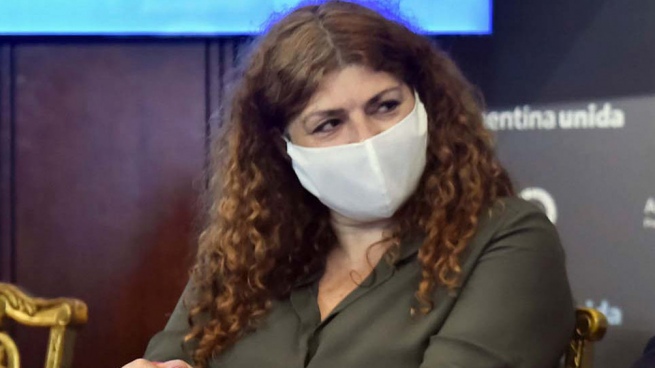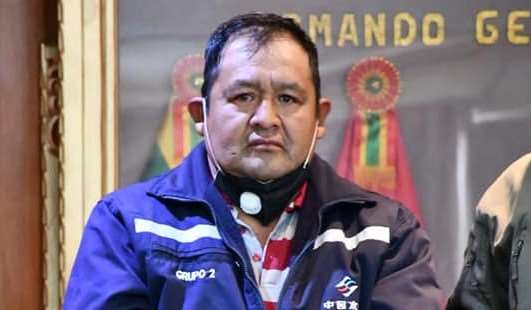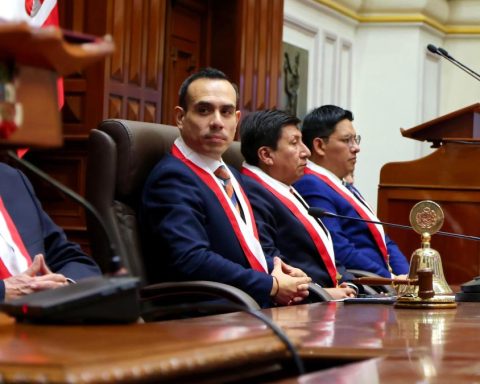The head of Sedronar, Gabriela Torres, stated this Saturday that “consumption is a symptom, treatment is comprehensive and not only has to do with giving up the substance” and said that “we must work for the non-stigmatization” of people when refer to the case of adulterated cocaine that caused 24 deaths.
In an interview with Télam, the Secretariat for Comprehensive Drug Policies of Argentina, assured that its organization cares for “people from all social classes” with problematic consumption and added that it is necessary to “work for the non-stigmatization” of people “for being poor and young” as criticism of the treatment given by the media to the case of adulterated cocaine.
“Consumption is always a symptom, the treatment is comprehensive, it does not only have to do with quitting the substance”Gabriela Torres, head of Sedronar
“It should be noted that Sedronar was in charge of caring for the person and drug trafficking, each territory solved its problems with a specific area, with its structure,” he said, recalling that in 2017 the agency separated from the drug trafficking approachan issue that passed to the area of the Ministry of Security.
After the Mental Health Law and the law that created the Comprehensive Plan for Addressing Problematic Consumption (Iacop) “outpatient treatments were enabled through the necessary relationship with the health system,” he stressed and stressed that “consumption is always a symptom, treatment is comprehensive, not only has to do with quitting the substance.”
From the Federal Drug Policy Council #COFEDRO We reaffirm our commitment to articulate a large Federal Network together with the health system, in a systematic work of care and prevention throughout the country.
? Download the document here: https://t.co/TeYwpJMkU3#We are pic.twitter.com/DmG2paizRv
– Sedronar (@Sedronar) February 10, 2022
Treatments and community containment
Torres recalled that last year 500 Community Care and Accompaniment Houses (CAAC) and 127 Community Territorial Devices (DTC) were opened with municipalities and provinces, which were articulated with the health system.
“Today there is a diversification of treatments such as outpatient and therapeutic”, he pointed out and added that they have 50 community convivial houses. “From Sedronar we support municipalities and provinces to strengthen what they do there.”
The community centers have “a logic of putting together an affective role because in these cases we always have to accompany,” he said, noting that “we work with family groups or affective referents.”
“We serve people from all social classes”
In relation to the conception of problematic consumption, he indicated that “it was changing. Before there was an imaginary, for example, that if a member of the family consumed, that was a bad family.”
“We serve people from all social classes; we must work to avoid stigmatization, so that people talk more about these issues,” said Torres, stressing the importance of the “role of the media.”

In relation to the consumption of adulterated cocaine that killed 24 people and intoxicated more than 80 in the northwest area of the Buenos Aires suburbs, last week, the head of Sedronar observed that on Thursday “our telephone line grew 75% because 141 (a free and anonymous hotline that works 24 hours a day) was 24 hours a day in all the channels”.
“In general there is a lot of stigmatization, and that day there was a lot of talk about drug trafficking, people were stigmatized as ‘bearers of faces’, poor and young, and also the neighborhood” Puerta 8 located in the district of Tres de Febrero where the drug was sold. adulterated cocaine, he said.
In that sense, he said that “we must mourn and accompany the victims and their families, but this cannot pass by society because the problem of consumption affects us all.”
“We make it clear that we are dealing with people and if we do not deal with the issue in depth, we lose an opportunity,” he said, warning that it is necessary for society to ask itself “why we consume”.
-
IT’S ANONYMOUS AND FREE
-
You can call for yourself, someone in your family or someone you know.
-
24 hours a day, every day of the year.
- Attention, information and accompaniment on substance use – www.sedronar.gob.ar
Educate about problematic consumption
In relation to the role played by the State in dealing with problematic consumption, Torres underlined the role of “National Drug Observatory” and the accompaniment to strengthen “the provincial observatories”.
He also recalled that the body signed “a program with unions to train delegates and listening centers were opened.”
The official observed that “it is important that in the curricular guidelines the issue of prevention has returned to the school so that boys and girls have information about what happens to the body, question consumption practices at all levels.”
“This was approved at the 106th assembly of the Federal Education Council, and we are working along these lines because prevention has to be systematic,” he said.
#We are#Sedronar#Line141 pic.twitter.com/bFQ8VrmeJZ
– Sedronar (@Sedronar) February 6, 2022
Women who consume face a “double stigma”
The official stressed that today “there is a coordination of gender diversity with treatments specifically for women,” and said that “on our 141 line, 90% of the calls are women and 75% to ask for a man, son, husband, nephew“.
He specified that this is because there is a “double stigmatization of a woman who consumes” because if she does “she is a bad woman, an easy woman, a bad mother”.
The goal of treatments specifically for women is to create “a space where women interact with women” and a place “so they can go with their son, for example.”
He also stated that it is about knowing “how to articulate violence with consumption together with the Ministry of Women, Gender and Diversity” for which training is carried out to address this issue.
Sedronar tripled service spaces since 2019
The number of care and support spaces that the Federal Network of Sedronar co-manages with municipalities and provinces went from 250 in 2019 to 752 in 2021, the year in which 40 new community Territorial Devices were also created.
This network provides care to 57,000 people who undergo treatment on an outpatient basis and another 5,000 who do it under the residential modality.
During 2021, 40 new Community Territorial Devices (DTC) were also created, which added to those formed in 2020 total 66 new service spaces with an average of 18,000 people served monthly.
Since the beginning of the administration, the DTCs went from 61 to 127 in December 2021.
Currently, Sedronar has a total of 501 Community Care and Accompaniment Centers (CAAC) distributed throughout the country: in the Greater Buenos Aires there are 165; Buenos Aires Interior, 53; City of Buenos Aires, 59; Patagonian region, 40; Center, 73; Whose Region, 25; Northeast, 31; and Northwest, 55.
Another initiative was the creation of the Virtual Campus with which the scope of training in the prevention of problematic consumption was enhanced.
In total, between face-to-face and virtual courses, Sedronar trained more than 16 thousand people from technical teams, teachers, union delegates and security forces.
One of the measures taken in 2021 was the strengthening of the 141 telephone line through dissemination campaigns for its free and anonymous attention – it works 24 hours a day, 365 days a year – which allowed the scope of the service to be expanded, registering 40% of increase in responses provided.
The agency signed an agreement with Trenes Argentinos Operaciones, from which they delivered 600 cards for transfer and free use of the rail network to people in a situation of high social vulnerability, who are in treatment for problematic substance use.
Based on this situation, people undergoing treatment who attend some of the Sedronar network care and attention spaces in the Metropolitan Area of Buenos Aires (AMBA) can use the railway services of Trenes Argentinos, which bears the cost of the passages.
Community accompaniment houses
Regarding the Care Houses, he clarified that there are “for population living on the streetsfor youthsY gender diversity“. In the case of homeless people “the house has different schedules and the psychologist has a not so rigorous scheme”, he explained.
“It is not the same to make a group of young people than a group with adults who have been using for more than 10 years because it is not the same to intervene with any person, it is important to consider who that person is,” he explained.
For this reason, each place has spaces for sports, boxing, art workshops, cinema, orchards, carpentry, recycling or workshops so that the person can return to work.
As part of the actions carried out by the State, Torres said that in “Chaco the first center was opened to address problematic consumption in the Toba neighborhood, where there is also something to learn culturally because each population has its particularity.”
Finally, he highlighted the construction of Day Houses for young people based on an agreement with the Ministry of Territorial Development and Habitat and the Ministry of Public Works and with different municipalities and provinces.

















